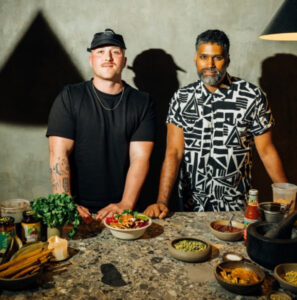Scope calls on broadcasters to shift the dial on disability representation

Disability equality charity Scope has released new data showing that TV viewers feel Black, Asian and minority ethnic disabled people are severely underrepresented on our screens, with a quarter of us barely seeing someone from that background in the last year.
One in ten people have only seen a disabled person who was Black, Asian or minority ethnic once in the last twelve months, with 16 per cent not seeing them at all in the last 12 months.
It comes as Scope launches its new strategy ‘An Equal Future’ calling for better on and off-screen representation to improve attitudes around disability.
This is important because representation in the media has real world consequences, with the potential to reinforce or challenge perceptions of disability. Scope has found 8 in 10 minority ethnic disabled people have experienced negative attitudes and behaviour from others in the last five years, including verbal and physical abuse [2].
Fats Timbo, 26, is a comedian and model with 2.9 million followers on TikTok. Fats is a Black woman and refers to herself as a “little person”.
“Sadly, I’m not surprised by these statistics. It’s been clear all my life that no one on TV looked like me.
“Growing up the only representation of little people I saw was in things like Charlie and the Chocolate Factory and Snow White and the seven dwarves.
“They were being identified as emotions and non-human. It made me feel like I wasn’t as human as everybody else.
“And because that’s what people saw, that’s what people associated me with. I’d be called nicknames like munchkin, rather than my actual name.”
The move towards better representation is supported by the British public, with 43 per cent saying there should be more Black, Asian or minority ethnic disabled people in prominent roles on TV.
However, 14 per cent of the British public strongly oppose seeing more Black, Asian or minority ethnic disabled people in prominent TV roles.
James Taylor, Director of Strategy at Disability Equality Charity Scope, said:
“It’s not right that disabled people are still largely missing on TV, and Black, Asian and minority ethnic disabled people are largely invisible in any sort of programming Representation on screen matters, it shapes public perceptions and can shift attitudes towards disabled people.
Despite a small proportion of the public not wanting to see greater diversity on screen, almost half of the UK support the need for more diversity. The media industry has a huge role to play in shifting public attitudes, and whilst there has been some great progress there is much further to go. That’s why as part of our new strategy, Scope want to work with the media industry to tackle the lack of diversity in television.
“We’re calling on all broadcasters to come together and shift the dial on inclusive and diverse disability representation. Together we can make change happen and make more engaging programmes for viewers as a result.”
Fats added:
“If we don’t see people like me on TV then people’s attitudes towards disabled people won’t change.
“That’s why we need to see people like me in normal roles, with fully developed characters with their own storylines regardless of their disability.”
[1] Surveys carried out by Opinium on behalf of Scope between 29 August and 1 September 2023 with 2,000 UK Adults weighted to be nationally representative
[2] Surveys carried out by Opinium on behalf of Scope between 13th May to 20th June 2022 with 4,015 disabled adults in the UK weighted to be nationally representative




